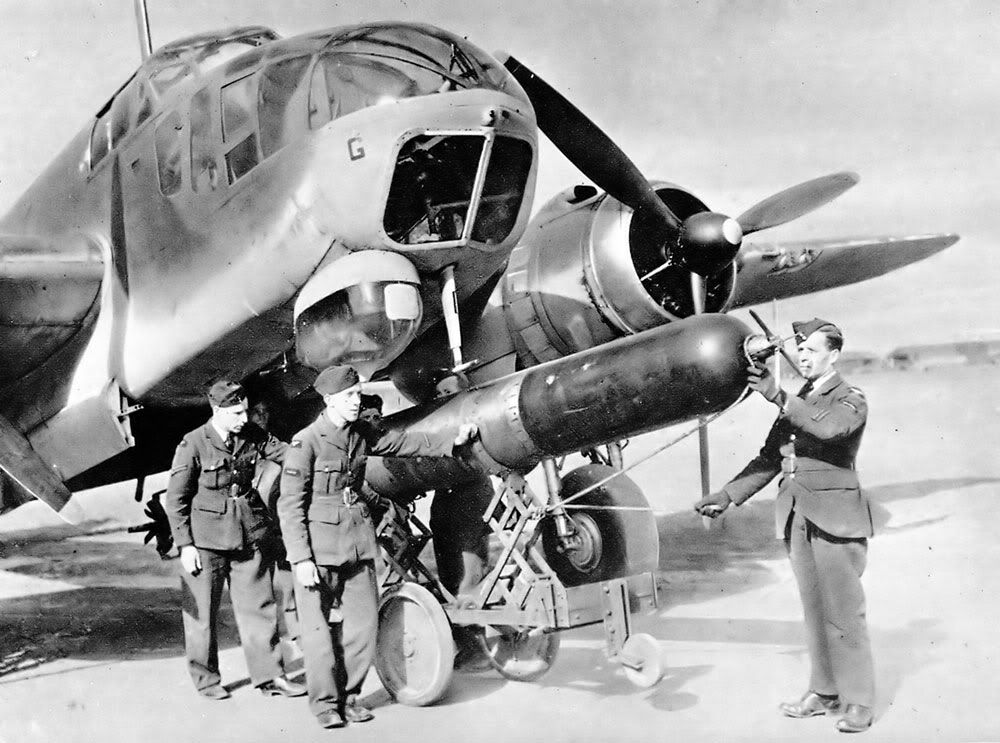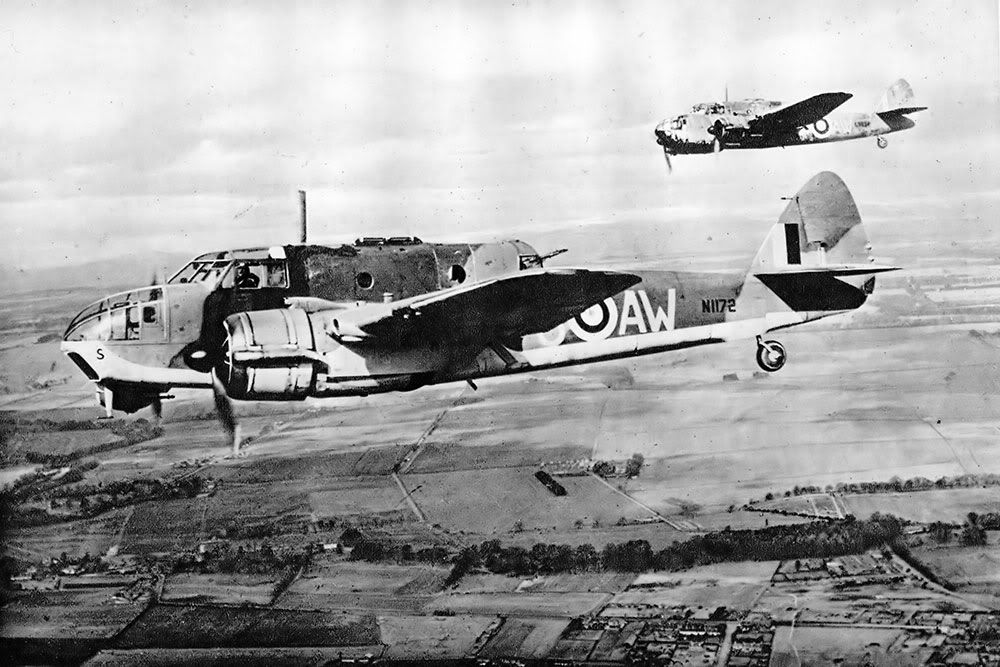Part 79.
5. Beaufort v. Battleship
Shortly before midnight last night (Thursday) a Blenheim aircraft of coastal command on reconnaissance off the southern coast of Norway sighted an enemy pocket battleship escorted by a number of destroyers.
A striking force was despatched by coastal command and in the early hours of this morning the battleship, then off Egersund, was hit by a torpedo from a Beaufort aircraft. Dense clouds of white smoke rose from the vessel and prevented accurate observation by other aircraft of the results of their attacks. (Air Ministry Communique.)
FRIDAY, JUNE 13TH was not a lucky day for the German Navy. A Coastal Command Beaufort aircraft, of which I was the pilot, obtained a direct hit with a torpedo on a German pocket battleship as it was slinking out past Norway, and sent it, with its attendant destroyers, back home.
When it was getting near midnight on Thursday we had orders to push off with other aircraft from the squadron. Somebody mentioned that it would soon be the 13th, and when my wireless operator found that we had to take pigeon container No. 13 he said, �We�re bound to be lucky."
Carrying our torpedo slung beneath us, we started off in formation. There was a bit of moon, but it was partly obscured and shone through the haze only occasionally. In some patches of cloud you could see hardly anything, but it was fairly light in the clear spaces. We were well over the North Sea when midnight came. We were flying pretty high as we approached the coast of Southern Norway and found several gaps in the clouds where the moon was breaking through. You could see the surface of the water and, as we came into one of these clearings, we suddenly spotted a formation of enemy warships away down under the star-board wing. The white washes trailing behind them caught our eyes first, and then we saw the ships' small black slim shapes. They were arranged in a very nice formation with the pocket battleship in the middle and her five escorting destroyers dispersed around her. One destroyer was right ahead of the battleship and there were two more destroyers on each side, making a pretty effective screen. We dived to get into position from which to attack. We came down to a few hundred feet above the sea and flew at right angles across the stern of two destroyers bringing up at the rear. That put us on the broadside of the formation. We made a right-about turn to starboard and came straight back on its beam.
There was not much time to think about attacks. One destroyer was right in our way and I had to skid round its stern to get a suitable angle to drop. We were close enough to the destroyer to see the design of its camouflage, outlines of the deck fittings, and even the rail. The next second I put the nose of the aircraft round and saw the battleship in my sight. I pressed a button on the throttle which released the torpedo�and away it went.
As soon as the torpedo had gone I made a sharp turn to port and opened my engine flat out. I was expecting a barrage of flak at any moment. The navigator beside me was looking back at the ship saying, �It�s coming, it's coming." But fortunately the flak did not come, not even when, for one unpleasant moment, we found ourselves in a vertical turn round one of the destroyers where we should have been easy meat. I think our attack must have taken them completely by surprise. All this time the torpedo was running on its course and really only a few seconds had elapsed.
As we flew clear from the ship, the rear gunner and the wireless operator shouted together over the inter-com., �You�ve hit it. There's a great column of water going up, and dirty white smoke."
I flew round in a circle to see for myself, and sure enough there was plenty of smoke and a patch of foam on the ship's track. Naturally I didn't want to hang around too long, so when we were satisfied with the results of our attack, we made a signal reporting it.
When we got back home we heard that other aircraft had found the German force after we had attacked it. The ships had stopped by then and were trying to hide themselves behind the smoke-screen made by the destroyer. Still later we learned that the formation had turned back to the Skagerrak and was limping home at reduced speed.

A torpedo is loaded on a Beaufort of Coastal Command.

Bristol Beaufort torpedo-bombers set out.